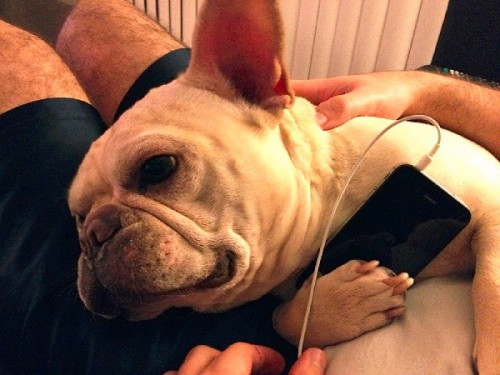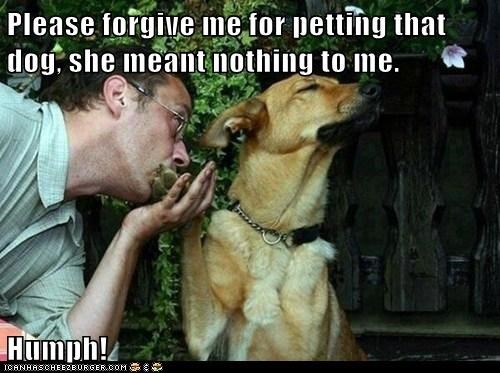Protective Dog Breeds That Are Not German Shepherds
Dogue de Bordeaux
The Dogue de Bordeaux is a large, powerful breed. It grows to 27 inches at the shoulder and weighs up to 100 lbs. The dog has a stout, muscular body and an imposing look. It is a naturally loyal and protective breed but is not overly aggressive. It is gentle with children and its family but will not back down from a threat posed by an intruder.
Akita
The Akita is a large, powerful breed, growing to 28 inches at the shoulder. It is heavily muscled, has a thick, two-layer coat and a curled tail. It is a natural guardian and will raise the alarm loudly if it detects an intruder. The breed’s temperament can differs from dog to dog so it is not ideal for families with small children.
Bouvier des Flandres
The Bouvier des Flandres is a large breed that grows to 27 inches at the shoulder. It has a sturdy, square body type with a long, double-layer coat. It is a brave, loyal and protective breed which makes a good family companion. It requires a lot of exercise and may become too playful around small children if not supervised.
Rottweiler
The rottweiler is an imposing, muscular breed, growing to 27 inches at the shoulder. If trained well and socialized, the dog is a loving pet. It enjoys time with its family and will defend its people from strangers with intense courage. The dog needs to be introduced to new people before it will trust them.
Kuvasz
The kuvasz is a large breed that grows to 30 inches at the shoulder. It originated from Tibet and has a thick, double-layer coat. Its natural guarding instinct makes it a good flock protector and it was used for centuries to defend sheep and cattle from wild predators. It is a reserved breed and does not show huge amounts of affection, but will protect its family courageously.
Komondor
The komondor is a large breed, growing to 25 inches at the shoulder. It has a distinctive, two-layer, corded coat which looks very much like a mop. This coat protects it from the bites of other animals. It, like the kuvasz, is a livestock protector. It is loving with its family but is suspicious and defensive towards strangers.
Can Dogs Experience Jealousy?
Anyone who thinks dogs can’t feel jealousy has never met my dog. My French Bulldog, Huggs, is very well-behaved. Trained as therapy dog, he is quiet and low-key, that is until you are not paying “enough” attention to him. He is well known in the family for wanting something anytime you are doing anything else. Whether that means climbing onto your newspaper or casually leaning backwards across your lap so you can’t possibly use your laptop, making dolphin-esque noises when you stop touching him, or squeezing himself between my husband and I, he is either extraordinarily jealous, or the biggest attention-whore known to dog-kind, or both. I’ll go with both.

As a kid we had Simon the Lhasa Apso who was happy as can be until we introduced our second dog, a Shih Tzunamed Wally. When Simon wasn’t hiding under the bed in protest, he took to stealing things from the bedrooms and would run by tossing it in the air so everyone would come after it and away from whatever adorable thing Wally was doing. Was he jealous? If he was a kid, we probably would have sat down with him and told him that we loved him and his new brother equally and they get the same amount of attention. But if you are a first born child, you probably felt what Simon felt: that it simply wasn’t true (did I mention I’m the baby of my family?)
I actually had this discussion about dogs and jealousy with my family just the other day. The common consensus was that jealousy is a complex emotion and therefore reserved for human feeling (and squabbling,) not something dogs would concern themselves with. But a new study from PLOS ONE, might make you rethink how dogs think.
Adapting a test that has been used to determine jealous behavior in human infants, Psychologists from the University of California, San Diego researchers were able to determine that dogs do in fact feel jealous.
Researchers videotaped 36 small breed dogs reacting to their owners ignoring them and instead displaying affection to an animated, stuffed dog that barked, whined and wagged its tail. During these interactions with the plush pet, over three-quarters of the real dogs pushed or touched their owners. The dogs also made attempts to get in between the stuffed animal and the owners, or went as far as to growl at the imposter.

The findings mirror those of studies of 6-month-old babies who had jealous reaction to their moms interacting with a doll, but were less concerned about moms interacting with a book.
Psychologist Christine Harris, who led the study, says she’s been studying jealousy for many years — but in humans.
So what does she think of the dogs?
The fact that these dogs seemed like they were trying to draw their owners away from the stuffed animal indicates that they’re feeling something very similar to human jealousy, Harris says.
But in the end (as convincing as it seems) the study still doesn’t prove that dogs feel jealousy. “The problem is that [the researchers] didn’t look at how dogs would react just to those objects,” Laurie Santos , director of the Canine Cognition Center at Yale University tells NPR. Jealousy is a complex emotion. If we find out that dogs feel the same way, “either jealousy is less complicated because animals show it, or animals are more complicated than we thought.”
While the study might not be conclusive, there is no doubt that whether your call it jealousy, fear or sadness, dogs feel something when someone or something gets in the way of the love and attention they deserve. This site is filled with information helping dogs to adjust to life changes and additions of new family members, be it human, dog or other. Just like with humans, some dogs are likely to feel the pull of emotions greater than others.





